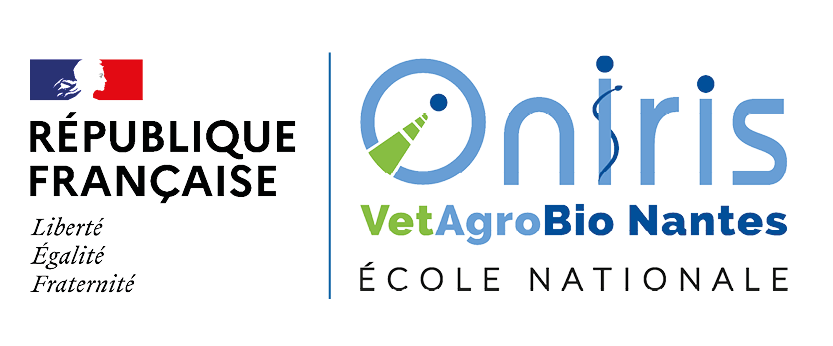CRCI2NA (Home laboratory)
Comparative oncology research team, part of the Nantes-Angers Cancer and Integrated Immunology Research Center (CRCI2NA-Unité Inserm U1307, CNRS UMR6075).
Unit presentation
Oniris’s team of researchers in comparative oncology work within CRCI2NA (in teams 2 and 7): the Nantes-Angers centre for research in cancerology and integrated immunology. They seek to develop translational studies on cancer in companion animals.
The aim of Oniris’s researchers is the phenotypical, genotypical and functional characterisation of canine and feline cancers with a view to helping develop innovative therapeutic approaches that could be quickly transferred to human clinical practice. The team provides domestic animals suffering from cancer with new diagnostic and therapeutic tools with the notion that dogs and cats spontaneously suffering from cancer could be excellent models for preclinical research, ideally positioned between murine models of induced or grafted cancers and clinical reality in humans. Given the regional context, diagnostic and therapeutic innovations in nuclear medicine (imaging and radioimmunotherapy) are explored in particular.
The main tumours investigated show clear pathophysiological similarities with human cancers and a sufficient probability of recruitment of veterinary cases. This mainly concerns:
- Mammary carcinomas, including the highly aggressive triple-negative subtype, which is predominantly diagnosed in female dogs and for which there is currently no fully developed treatment for women;
- Diffuse large cell non-Hodgkin's B lymphoma, which is the reference model for preclinical trials in radioimmunotherapy, in regard to prospects for producing new radiopharmaceuticals in partnership with the Arronax cyclotron.
Studies on other types of spontaneous animal tumours (gliomas, melanomas, histiocytic sarcomas, osteosarcomas, etc.) are also carried out in partnership with European teams and with regional teams from the Cancéropole Grand Ouest centre for cancer research.
Research themes
- Characterisation of animal cancers (morphological and molecular)
- Prognostic factors of animal cancers
- Preclinical studies on spontaneous animal cancers
- Image analysis, dosimetry and modelling in nuclear medicine
Teaching and research team members :
Nicolas CHOUIN
Catherine IBISCH
Frédérique NGUYEN
The unit at a glance
The work of the Oniris comparative oncology research team, part of the Nantes Angers Cancer and Immunology Research Center (CRCINA), aims to develop translational studies of cancer in companion animals, with a view to contributing to the development of innovative therapeutic approaches that can be rapidly transferred to the human clinic.

![[Translate to English:] CRI2NA](https://www.oniris-nantes.fr/fileadmin/Ecole/Images/Recherche/unites_recherche/crcina/crci2na-logo.jpg)